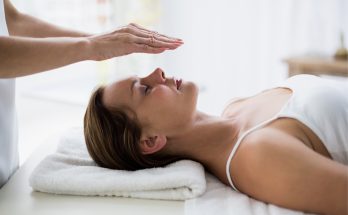Experiencing perimenopause can be stressful for many women during normal times. With the pandemic’s long list of stressors, it now appears to be making this major change even more difficult for women.
The national women’s health nonprofit, HealthyWomen conducted a survey last June to see just how perimenopausal women were coping with both major life events. The survey drew responses from over 3,000 women, with half of them being in either their 40s or 50s, and nearly two-thirds of them were white. Questions covered topics including emotional and mental health, seeing a healthcare provider, and using technology to manage their perimenopausal symptoms.
The survey’s results revealed one-third of the women reported more stress, worry, general anxiety, and frustration than during pre-Covid times. There were even more reports of depression and loneliness among these women.
Normal Difficulties v. Covid Exacerbated
“Menopause is not one size fits all,” says Beth Battaglino, CEO of Healthy Women and a registered nurse. “But for anyone going through mood swings and the anxiety from Covid-19, as well as not sleeping right due to the hot flashes, that’s just fuel to the fire.”
Women experiencing this major bodily change in normal times are more likely to experience insomnia, anxiety, and panic than women who are not menopausal. Women who are in the midst of this now have to deal with it on top of the upheaval of the pandemic.
“Menopause aggravates and adds to these stressors,” says Alejandra Castillo, the CEO of the YWCA, who discussed the findings as a panelist last month. “This is a big change in a woman’s life. It is a body and psychological change. Couple that with more crises, and these [menopausal] symptoms would be seriously aggravated.”
The Biggest Stressors
The top three concerns that would aggravate menopausal symptoms, according to the survey, were money, physical health, and access to food. These crises are exacerbated by the pandemic, since in addition to possible health problems, many either lost their jobs, or their partners lost theirs, which would lead to financial issues and affording food.
The survey shows that Black and Hispanic women worried about accessing food, and having a place to live more so than White and Asian women. These results indicate how these two groups were disproportionately affected by the pandemic’s economic factors than the other two.
At the same time, many women are taking care of their families while working from home or homeschooling their children. Although this survey did not ask participants about children, Battaglino believes taking care of their offspring added to these women’s stressors, mainly because of her personal experience.
“I can certainly attest to it because I’m in that market right now,” she says. “My anxiety is off the charts, and it is just trying to manage this new norm. So, what can we do to help ourselves?”
Things that Can Help
Battaglino says it is important for women experiencing menopause to pay attention to their diet and exercise.
It is also best for women to recharge themselves by taking a time out during the day, even if it means to have a coffee outdoors for a short while. Taking a time out helps reduce stress, which Battaglino says women need to do more often.
Know When to Get Medical Attention
Sheryl Kraft, freelance health journalist and midlife women’s health expert, and co-founder of thePause newsletter, which discusses menopause, gave her thoughts on this issue.
“The pandemic is no doubt upending our healthcare system,” Kraft says in an emailed statement. “Many women are hesitant to visit their healthcare providers for fear of contracting the virus. Hence, many health needs are being ignored. But women should not ignore the repercussions of these issues on their future health and should seek out help, even during the pandemic.”
So if you are going through this time of life, pandemic or not, remember to seek new ways to cope for the sake of your loved one’s well-being, and yours, and if you know someone who might need help, reach out.



